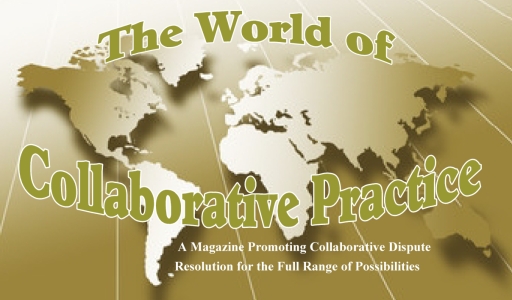
Tags
Related Posts
Share This
A Father’s Collaborative Divorce
Spouses choose to utilize the collaborative process to resolve divorce-related issues for many reasons, but one of the most common reasons is the need to co-parent once the divorce is finalized. Unlike the tradition courtroom divorce process, which treats mothers and fathers as adversaries, collaborative divorce treats parents as a team who want to reach an agreement that keeps their children’s needs at the forefront.
I recently had the opportunity to appear on iHeart Radio’s Tampa Bay Tomorrow with “Clair.” Clair is a father who went through the collaborative divorce process, and I represented Clair’s wife. Clair’s collaborative attorney, Julia Best Chase, also appeared on the radio program. Corey Dylan is the host of Tampa Bay Tomorrow.
Below are the parts of the transcript in which Clair discusses his collaborative divorce experience (edited for clarity). You can hear the audio of the entire 30-minute interview at the following link: http://familydiplomacy.com/blog/family-law-news/tampa-bay-tomorrow-radio-a-client-discusses-collaborative-divorce/
Corey: Clair, let’s talk to you. Let’s find out a little bit more. Can you tell us how did it even come up? A collaborative divorce? Was this your idea? Was this your former spouse’s idea?
Clair: Well, I think it was a mutual thing. We wanted to do this in a dignified way. For the sake of the kids, for the sake of our own self-worth. So we talk it out a bit and thought collaborative was the best process.
Corey: But had you ever heard of collaborative divorce? How did it come up?
Clair: I think my ex did some research and brought collaborative up as an option. And it worked out quite well for us.
Corey: So what appealed to you about the idea of a collaborative divorce? Did you think it was possible to get through this process and have everyone still on good terms?
Clair: It’s still tough, but considering the other alternatives, it was the best possible outcome for us.
Corey: Okay, so what was the process like for you? Did you go together to meet an attorney or a team of attorneys? What was the initial process like?
Clair: I actually sat down alone with Julia and she presented this process as an option. There was a team, with a financial professional and a facilitator. My wife soon hired Adam, and we came up with a good plan that met the kids’ needs. And, since we finalized, so far so good.
***
Corey: The perception is that men often get short-changed in any divorce. Literally or figuratively, with custody primarily going to women, and maybe the bulk of their estate going to women. Maybe is this a more fair process? What would you say about that, Clair? Did you feel it was more fair?
Clair: It was. My ex and I came up with our agreements. And, actually, before I spoke with Julia, I spoke with two other attorneys. And they did not offer or talk about collaborative divorce as an option. They were not part of the collaborative divorce process. And they wouldn’t even look me in the eye.
Corey: Really?
Clair: Oh, yeah. Julia was the only attorney I interviewed who was very compassionate, and the whole process, including Adam, was compassionate. And that’s important because divorce is tough. But I’m glad we utilized the collaborative process, and I’ve recommended others use this process. I’ve recommended both of the attorneys here [Julia and Adam] because of the way they handled the situation.
***
Corey: Clair, can you tell us what kind of individuals were involved in your divorce? I think you mentioned earlier that there was a financial professional who helped you navigate the next phase of your life.
Clair: Yes. The financial professional [Marie-Eve Girard] helped divide everything equally and fairly. Having that in mind, it eased things a lot, especially with the kids in mind. The facilitator [Rachel Moskowitz] was great to talk to. She gave us great advice. Divorce is an emotional thing.
Corey: I’m sure it is difficult to make decisions when you are dealing with highly emotional issues.
Clair: Yeah. And, you know, I’ve been in combat. I’ve been shot at. I’ve been stabbed. And I can handle a lot. But this was probably one of the hardest things I’ve ever had to do in my life. But, considering the options, it was much better than it could have been. Like I said, I’ve recommended collaborative divorce to several other people.
***
Adam: The interesting thing is that in trial divorce, generally people are truly going through a full-throated litigation where people are fighting in court. When people get divorced, that is usually just the beginning. There can be years and years of fighting afterwards. In the collaborative process, generally the outcome is you reach an agreement in a way in which you are getting along with one another. Clair, I see you nodding your head.
Clair: Yes. We seem to be getting along a lot better now because we have somewhat of structure, a tailored parenting plan, that we go by…The kids look forward to going back and forth. They’re getting to the point where it is not such a big deal.









Share your thoughts here and in your network.